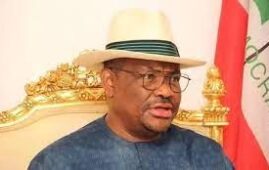By Wu Yuehe
Tourists always expect a good environment in the destination countries so that they could have more memorable travel experiences there. Travelling to the US, however, has aroused the feelings of uneasiness and anxiety among Chinese citizens.
Recently, Chinese citizens traveling to the US were harassed, interrogated, and even interviewed by US law enforcement agencies. Meanwhile, rising extremism and deteriorating public security in the US have also added risks to traveling to the US.
These factors, obviously, have hurt Chinese citizens’ desire to visit the US for relaxing and knowing more about the world.
China has expressed its concerns to the US many times, hoping that the latter could take more active measures to facilitate bilateral personnel exchanges and create better conditions for bilateral exchanges and cooperation in all fields.
On June 4, China’s Ministry of Foreign Affairs reminded Chinese citizens and companies in the US to raise their security awareness, step up precautions and contact the Chinese embassy or consulates if they’re in need of emergency assistance.
On the same day, the Ministry of Culture and Tourism also issued a safety alert, noting the high frequency of shootings, robberies and theft in the US. The ministry warned Chinese citizens assess the risks before traveling to the US, learn about the public security situation, laws and regulations of the tourist destinations, and stay alert for personal safety.
Harmony brings good fortune, while discord leads to misfortune.
Maintaining people-to-people and cultural exchanges is the foundation for the exchanges and cooperation in all areas between China and the US. The China-US exchanges and cooperation conform to the common interests and aspirations of the two countries.
Regrettably, apart from the escalating economic and trade frictions, some US politicians attempted to pressure and even contain China’s development from all aspects, which added uncertainties and unpredictable risks to bilateral exchanges in all areas.
Harmony brings good fortune. In 2017, Chinese travelers created total revenue of $32 billion for American air lines, hotels and tourist agencies, twice the sales of US aircrafts to China, according to the official data from the US Department of Commerce.
But the situation changed after the US initiated trade disputes with China. According to US media, the flight bookings from China to the US saw a 42-percent decrease during the 2018 week-long National Day holiday, which commonly sees a surge in outbound tourists.
Furthermore, the US dropped by five places in the ranking of the most popular destinations for outbound Chinese travelers, said Ctrip, an online travel agency in China.
In 2018, about 3 million Chinese tourists visited the US and spent roughly $30 billion there, according to the U.S. National Travel and Tourism Office. It indicates that if the trade frictions escalate, the tourism service industry in the US will inevitably continue to lose income as the number of Chinese tourists to the US drops.
Tourists choose destinations based on their own will and the design of tour products. A safe and friendly country which provides convenient customs clearance services is the most desirable tourist destination.
The US has had 150 mass shootings in 2019 so far. It’s not safe to go out at night in the US and troubles may occur at the customs out of no reason. Considering this, Chinese citizens would not go thousands of miles over the Pacific Ocean for a not-so-beautiful memory, unless they want to take an adventure.
Chinese government has been encouraging people from all walks of life to have frequent exchanges with the US side. As a Chinese saying goes, “Friends and relatives become closer when they visit each other more.” This is true for Chinese and Americans, as exchanges bring deeper friendship and more vigorous practical cooperation.
However, some US politicians act against common sense by launching the trade dispute, cracking down on Chinese companies, harassing Chinese nationals and causing troubles for bilateral people-to-people exchanges.
Tourism could promote the economic development by driving the aviation, catering and hotel industries, and also influence related manufacturing industries. Some foreign media noted that as fewer senior managers of Chinese enterprises, travelers and students come to the US, the trade frictions between Washington and Beijing will expand in an unpredictable and costly way.
The US faces a mathematical problem which is far from complicated. Washington will never get a positive solution on trade balance according to its calculation method. The US tourism, seeing a modest decline in tourist revenues, will definitely cause job losses when the revenues reduce substantially. Is it what the US really wants?










Leave a Comment